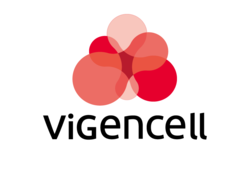ViGenCell said Monday that it had initiated the Cohort 3 study, the final step of the phase 1 clinical trial of VT-Tri(1)-A for treating acute myeloid leukemia (AML).

VT-Tri(1)-A is ViGenCell's first-in-class treatment for AML. It targets multiple common antigens. Last September, it began enrolling patients in Cohort 2 and recently completed the trial.
As in Cohort 1, the company said there were no treatment-related serious adverse events or dose-limiting toxicities (DLTs) in all patients treated in Cohort 2.
It added that in Cohort 3, the number of doses per patient will increase to four, and the trial will be conducted at seven medical institutions, including the Catholic University of Korea Seoul St. Mary's Hospital.
The ViTier platform-based VT-Tri(1)-A, an antigen-specific killer T-cell therapy, has demonstrated safety and efficacy in investigator-initiated clinical trials targeting a single WT1 tumor antigen (WT1-CTL) from 2007 to 2013, with a two-year relapse-free survival rate of 71 percent and a relapse rate of 0 percent.
Since then, the company has been conducting R&D with VT-Tri(1)-A, a modified pipeline that simultaneously targets three common tumor antigens—WT1, Survivin, and TERT—to overcome cancer cells' tumor immune evasion function in phase I clinical trials.
"We are pleased to be able to start enrolling patients for Cohort 3 without any significant adverse events or idiosyncrasies in Cohort 2," said Sohn Hyun-jung, vice president of development headquarters at ViGenCell. "We will continue to work hard to complete phase 1 and other future studies to provide a new treatment alternative for patients with AML."
In addition to the ViTier platform technology, ViGenCell has received orphan drug designation for VT-EBV-N from the Ministry of Food and Drug Safety in 2019 and orphan drug designation from the European Medicines Agency (EMA) in 2023, having obtained nine approvals for the therapeutic use of VT-Tri(1)-A since 2021, Sohn added.

